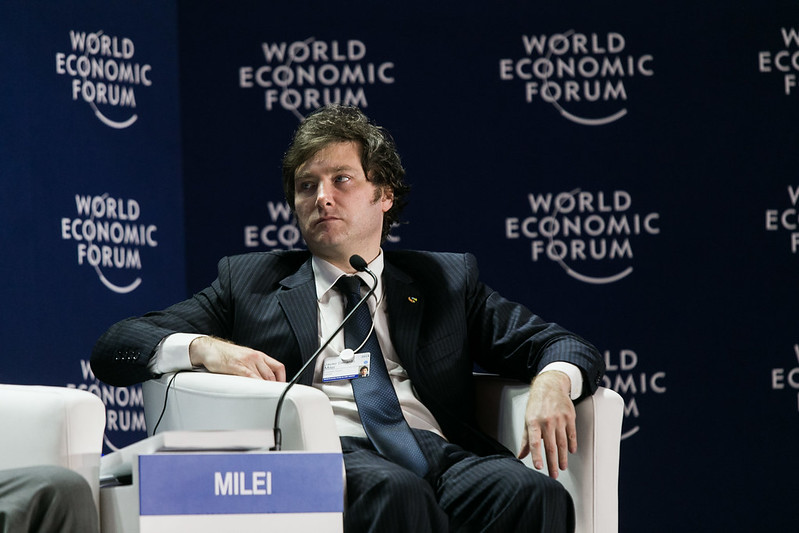
Javier Gerardo Milei, Chief Economist, Corporacion America, Argentina at the World Economic Forum on Latin America in Panama City 2014. Copyright by World Economic Forum / Benedikt von Loebell. License.
At the Cato Institute, Ian Vasquez explains the impressive depth and breadth of Javier Milei’s win in Argentina’s presidential election. Milei, recounts Vasquez, appealed to young people and those of all classes who wish for an end to the Peronist system that has damaged the country. Vasquez writes:
Javier Milei’s victory over the Peronist‐party candidate in Argentina’s presidential election Sunday was crushing. Milei won by 11 points and in almost all electoral districts. He received the support of young people and of all socio‐economic classes, including strong support from the middle and lower classes.
He did so with a message that, for the first time in almost 80 years, did not propose to simply adjust the corporatist, client‐patron system imposed by Juan Domingo Perón, but to dismantle it completely because it is impoverishing and immoral. In clear language, Milei proposed a paradigm shift: to return Argentina to the classical liberal tradition that made that country one of the richest on the planet a century ago.
His campaign speeches focused on the importance of freedom, long lost under the weight of an oversized Argentine state. Before a national public, he incessantly repeated his definition of liberalism (in the classical sense), borrowed from the distinguished Argentine liberal Alberto Benegas Lynch Jr., whom he cites as a sort of national hero: “Liberalism is the unrestricted respect for the life project of others based on the principle of non‐aggression and the defense of the right to life, liberty, and private property.”
Guided by this vision, Milei proposes to shrink the state and expand the role of the private sector and civil society. In practice, he proposes a significant reduction in public spending and taxes; dollarization and the elimination of the central bank; free trade; the elimination of bureaucratic obstacles; the reform of public administration; labor sector flexibility; and education reform that includes increased competition and school vouchers, among other proposals.
Will he be able to accomplish this ambitious agenda? It will not be easy. The economy is in crisis and the outgoing government has left an economic time bomb that any incoming government would have to deal with. Argentina has an annual inflation rate above 140 percent, a fiscal deficit exceeding 5 percent of GDP (or about 10 percent of GDP depending on how it’s measured), poverty above 40 percent of the population, a bankrupt central bank, interest rates over 130 percent, government debt at an all‐time high, a recent splurge in public spending, debt payments coming due soon, and a shrinking economy. Any adjustment—which will include significant hikes in the price of gasoline, electricity, transportation, and so on—will be harsh.
Read more here.
If you’re willing to fight for Main Street America, click here to sign up for my free weekly email.





